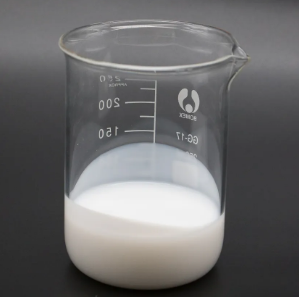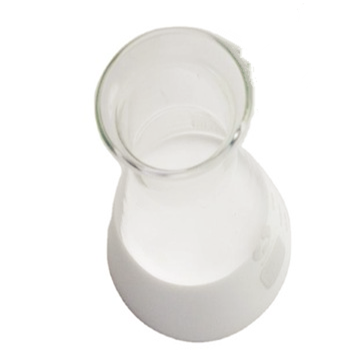Water-Based Zinc Stearate: A Sustainable and High-Performance Solution for Industrial Lubrication, Release Agents, and Surface Engineering zinc stearate used in plastics
Introduction to Water-Based Zinc Stearate: Bridging Performance and Sustainability in Modern Manufacturing
Water-based zinc stearate is an eco-friendly choice to solvent-based lubricating substances and launch representatives, providing premium efficiency with marginal eco-friendly effect. As markets change toward greener manufacturing methods, this liquid diffusion of zinc stearate has gained importance throughout fields such as rubber handling, steel developing, concrete casting, and polymer manufacturing. Its capability to provide reliable lubrication, stop bond, and decrease surface flaws makes it a functional tool in modern-day industrial applications. With expanding governing pressure on volatile natural substance (VOC) exhausts, water-based zinc stearate sticks out as a clean, effective, and scalable option.
(TRUNNANO Water Based Zinc Stearate)
Chemical Make-up and Useful System
Zinc stearate is a metallic soap formed by the response of stearic acid with zinc oxide or zinc salts. In its water-based formula, it is generally spread using surfactants or emulsifiers to guarantee stability and consistent application. When related to surface areas, the zinc stearate bits create a thin, hydrophobic movie that reduces rubbing and stops straight contact in between products. This device is essential in mold release procedures, where it assists in easy demolding without damaging the final product’s surface stability. Furthermore, its high melting factor (~ 120– 130 ° C) enables it to do effectively under moderate thermal problems, maintaining capability during high-temperature procedures.
Applications in Rubber and Polymer Processing
In rubber manufacturing, water-based zinc stearate offers twin purposes– as a mold launch agent and as an interior lube. It stops sticking in between uncured rubber substances and mold and mildew surface areas, making certain regular part top quality and minimizing post-processing initiatives. In thermoplastics and elastomers, it enhances flow residential properties during extrusion and injection molding, lessening pass away build-up and boosting surface area coating. Its compatibility with different polymers, consisting of polyolefins, PVC, and design materials, better broadens its energy. In addition, its non-reactive nature ensures it does not conflict with curing or vulcanization reactions, protecting material efficiency features.
Duty in Steel Forming and Stamping Industries
The metalworking market significantly counts on water-based zinc stearate for cold and warm developing operations. Used as a lube in marking, attracting, and creating, it develops a safety border layer that reduces tool wear and enhances part surface area quality. Compared to oil-based or wax finishes, it uses better heat dissipation and cleaner procedure, which is especially beneficial in automated assembly line. Moreover, its convenience of elimination after handling– using easy water rinsing or moderate cleaning agents– lowers cleaning costs and avoids residue buildup on completed components. This makes it excellent for usage in automotive, aerospace, and accuracy part production.
Use in Concrete and Construction Products
Within the building and construction industry, water-based zinc stearate is extensively made use of as an interior launch agent for precast concrete aspects. Unlike typical oil-based products, it does not discolor surface areas or disrupt additional therapies like paint or finishing. When blended into concrete or put on formwork, it protects against bonding between the mold and mildew and the hard concrete, enabling very easy demolding while preserving dimensional precision. Its reduced viscosity makes it possible for also insurance coverage via splashing or cleaning, making it ideal for both manual and mechanized procedures. Furthermore, it adds to longer mold life by securing versus chemical assault and abrasion from repeated casting cycles.
Environmental and Security Advantages Over Standard Alternatives
One of one of the most engaging advantages of water-based zinc stearate is its environmental profile. Devoid of solvents, VOCs, and harmful additives, it lines up with global sustainability objectives and occupational health and wellness criteria. Employees benefit from reduced exposure to combustible or dangerous compounds, and manufacturers can meet stringent air high quality guidelines without additional ventilation systems. From a waste monitoring viewpoint, water-based formulations are simpler to handle and deal with safely, supporting circular economic climate methods. These attributes make it a preferred selection for business aiming to accomplish environment-friendly accreditations such as ISO 14001 or LEED conformity.
Market Trends and Technological Innovations
( TRUNNANO Water Based Zinc Stearate )
The market for water-based zinc stearate is experiencing constant growth, driven by enhancing need for environmentally friendly commercial solutions and stricter environmental legislation. Manufacturers are buying sophisticated dispersion modern technologies to improve security, expand shelf life, and improve performance under severe problems. Technologies such as nano-dispersed zinc stearate and hybrid formulas with silicone or PTFE are being checked out to use exceptional lubricity and temperature resistance. Additionally, wise shipment systems– including atomized sprays and dosing units incorporated with IoT– are enabling exact application control, lowering consumption and functional costs.
Challenges and Ongoing Research Instructions
Regardless of its advantages, water-based zinc stearate deals with certain restrictions, consisting of sensitivity to water firmness, potential microbial deterioration, and lower load-bearing capacity compared to artificial lubricating substances. To attend to these concerns, continuous research focuses on optimizing emulsion security, integrating biocides for microbial resistance, and boosting useful performance via additive synergies. Compatibility with different substratums and process conditions additionally remains a vital location of advancement. Efforts are underway to tailor formulas for specific applications, making certain regular performance across varied industrial atmospheres.
Future Prospects: Integration with Smart Manufacturing and Eco-friendly Chemistry
Looking in advance, water-based zinc stearate is positioned to play a main duty in the shift towards smart and sustainable production. Its integration with Industry 4.0 technologies– such as real-time monitoring, predictive maintenance, and automated giving– will certainly enable extra efficient and flexible manufacturing process. Breakthroughs in bio-based surfactants and eco-friendly feedstocks will certainly further improve its ecological credentials, supporting decarbonization techniques throughout supply chains. As sectors continue to prioritize resource efficiency and environmental stewardship, water-based zinc stearate stands for a critical development that balances technical efficiency with ecological obligation.
Vendor
TRUNNANO is a supplier of water based zinc stearate with over 12 years of experience in nano-building energy conservation and nanotechnology development. It accepts payment via Credit Card, T/T, West Union and Paypal. Trunnano will ship the goods to customers overseas through FedEx, DHL, by air, or by sea. If you want to know more about zinc stearate used in plastics, please feel free to contact us and send an inquiry(sales5@nanotrun.com).
Tags: water based zinc stearate, zinc stearate, zn stearate
All articles and pictures are from the Internet. If there are any copyright issues, please contact us in time to delete.
Inquiry us

